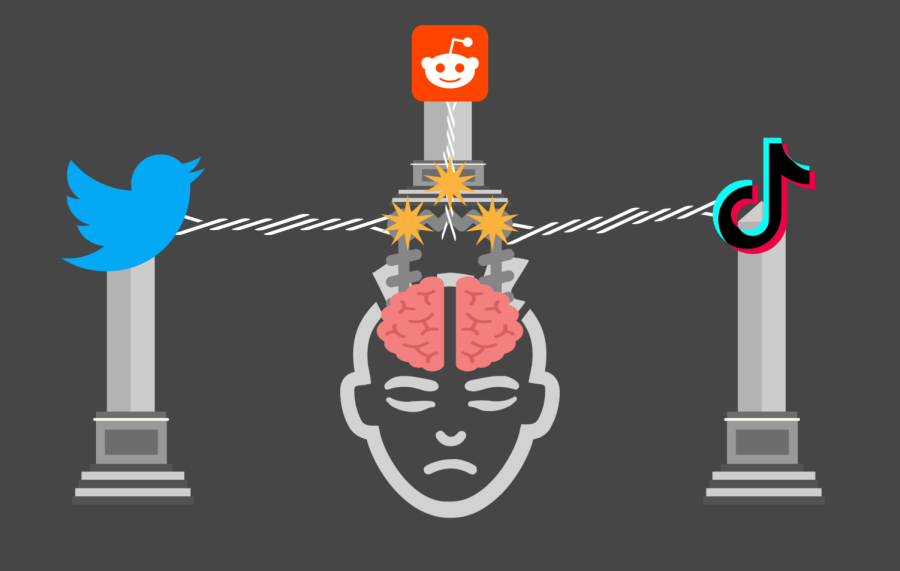A Screened In Childhood
Our generation is one of the last to not have electronics at the forefront of childhood. For many, the extent of their early years were spent playing Wii Sports or Just Dance in the living room. In just a couple of years, instead of playing ghost in the graveyard with the neighborhood kids, children will play Roblox’s version of cops and robbers. The switch to a more electronic social space was seen in the later years of Gen-Z’s childhood. Instead of calling their buddies on their home phone, they could skype and eventually FaceTime them. Instead of asking to play outside, it became asking them to play Minecraft or other games.
For many high schoolers, this is seen as a potentially good thing–coming home from school and getting on a game to wind down or socialize with friends. But for the younger generations, this could lead them down the wrong path.
Boston Children’s Hospital Digital Wellness Lab and Mayo Clinic both state that, due to children’s less developed brains, they are much more impressionable. Kids believe that a fat man in a red suit slides down their chimney to put presents under the tree and then gets back on the roof to take off in his sleigh with his flying reindeer. Believing in Santa does not mean that these kids are dumb, because it is what almost every child around the world does. It simply means they have a tenuous grasp on reality and are much more susceptible to opinions and lies on the internet.
With this weak grasp, it is not hard to believe that social media and the internet can negatively affect kids and teens by “distracting them, disrupting their sleep, and exposing them to bullying, rumor spreading, unrealistic views of other people’s lives and peer pressure,” (Mayo Clinic).
Introducing the internet and social media to impressionable kids can expose them to indoctrination. Because of the way social media is constructed as a constant stream of content and information tailored to personal likes and beliefs, it is easy to get sucked into echo chambers.
An “echo chamber” is defined as an environment in which a person encounters only beliefs or opinions that coincide with their own, so that their existing views are reinforced and alternative ideas are not considered.
As they grow up, they will only be reinforced in their beliefs because of the groups they can be a part of on the internet. This is seen with certain “subreddits,” which is a group/page where there are specified discussions and topics. This can also be seen with Facebook groups.
Essentially, the internet gives plenty of resources and actively delivers tailored media to everyone specifically. This can expose children to more radical or niche areas of thought than they can handle when their brains are not fully formed yet.
When spending the whole day online, these kids are exposed to more and more radical ideas that come from all different corners of the internet. Kids today find themselves in a position where it is harder to form opinions of their own and suddenly are exposed to adult content. It is still to early to see the results of this habit as the later half of Gen-Z is still fairly young, but as they progress and get older, this generation will likely prove to be different from all the rest.




